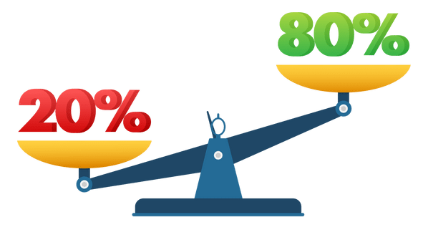|
I'm currently working with a client who owns a very successful and fast-paced remodeling business. Unfortunately, he worked with another agent prior to working with me and was never guided on how to prepare for an insurance audit.
We are now helping him to navigate through total chaos. If you're a contractor and you've experienced an audit, you know how crazy they can be. By applying three simple tips, your audit can be made much easier. Tip #1: Divide and Conquer Set up two separate bank accounts, one for payroll and sub costs and the second, for all other items: materials, marketing, office supplies, etc. It is also crucial that you do not mix your business expenses with your personal expenses. THE DO NOT MIX! Tip #2: Gather Certificates Make sure you are collecting certificates of insurance from every subcontractor you work with and keep those certificates filed safely away in case they are needed for an audit or claim. You'll want to make sure your subs' insurance limits are the same as yours-not less. To make sure you are as protected as possible, require that your subs add your company as an additional insured on their certificate. A little FYI, there are special endorsements you can require your subs to add which will add an additional layer of protection for YOU. Feel free to reach out to us if you'd like to know what these endorsements are or if you would like a sample certificate to use for refrence. Tip #3: Work With a Bookkeeper You're busy. I know. You're watching your expenses. I get it. However, you may be as surprised as I was to find out how inexpensive working with a bookkeeper can be. If you're small, it can cost as little as $50 a month - depending on who you're working with. Working with a bookkeeper allows you to focus on bringing in the money instead of managing it and better ensures you're going to have a really well done profit and loss statement (which your auditor will request.) I have several bookkeepers whom I have personally trained. Should you decide to work with one of them, your audit becomes incredibly easy. They send me the information I will need, I forward it to your auditor, and you are finished. It can be as easy as that. Had my client known these tips and applied them, he would have been saved dozens of hours searching for check stubs, certificates, and bank records. If you'd like to know more, receive recommendations for bookkeepers who are familiar with the insurance auditing process, or would like to connect with us please reach out. I'm happy to help. XOXO Your favorite insurance lady, Shauna
0 Comments
You've put in a lot of time, effort, and money into getting your next project. Not being able to start on time due to a lack of insurance is not what you want to have happen!
Here are three key steps to help you secure the right insurance coverage promptly:
Remember, proactive communication and thorough documentation are key to expediting the insurance process and ensuring you have adequate coverage for your fix and flip project. To know more of what might be asked of you, feel free to check out our online form here or call or text us at: 720-389-7651.  When it comes to commercial property insurance, coinsurance plays a crucial role in how expenses are shared between you, as the property owner, and your insurance company. Here's how coinsurance works in the context of commercial property insurance and how it can affect your business:
In summary, coinsurance in commercial property insurance determines how property damage expenses are shared between you and your insurer. Understanding your coinsurance percentage, policy limits, and how they affect your out-of-pocket costs is essential for making informed decisions about your commercial property insurance coverage, managing risks, and budgeting for potential property damage events.  One of Colorado's greatest physical features is her aspens. This year promises to be extra spectacular because we have had so much rain. If you pick the perfect time and location you are bound to have a memorable adventure. Here are a few of our favorite picks (click on each link to learn more):
Typically, the best time to go leaf viewing is mid-September to early October. Don't forget to check with local parks and forests or consult online resources to get the latest updates on fall foliage conditions during your visit AND before you go, remember to pack a picnic, hot cocoa, and plenty of snacks to keep everyone energized during your leaf-peeping adventures!  by Josalyn Tippets It feels like everything is increasing in price and the pinch is beginning to hurt. Many people have asked me why insurance premiums have shot up aggressively this year. Below you will find a short break down of why costs are on the rise:
Life insurance is the most personal type of insurance you can have in today’s world.
But there seems to be a lot of confusion about it. Every consumer has different priorities and feelings. Add to that the fact that life insurance can be used for a variety of financial goals and needs, and you have a recipe for befuddlement. When it comes to life insurance, most agree that if you have children, you should probably have it. There is no question. But what if you don’t have children? Do you need to purchase life insurance? Here’s why it may still be important, even if you don’t have kids now (or don’t plan to): Many households need a dual income to survive. Since women began entering the workforce en masse in 1960, household incomes have been on the rise. Many households have now adopted a lifestyle that depends on a dual income to maintain itself. If you’re in this situation, there might be some consequences of your life insurance decisions. If something happened to you or your spouse, would the survivor still earn enough money to maintain their lifestyle? If the answer is no, consider how a life insurance policy might help. Mortgage debt is big debt. Mortgage debt in the United States is big – bigger than credit card or student loan debt. Still, mortgage debt is “healthy” debt assuming the growing equity in a home makes it worthwhile. But mortgage debt can become a problem if a household’s income takes a hit. Life insurance can protect families from this risk by helping to pay off a mortgage, should something happen to you or your spouse. Either a term life policy or a special mortgage life policy can be used to pay off a mortgage. Mortgage life insurance can be a nice layer of protection for couples that don’t have children but do have a mortgage. Life insurance can be used as a savings tool. Many life insurance policies offer a cash value. This means that certain policies can be cashed in whether or not a death has occurred. In this way, a life insurance policy can act as a savings tool. Couples without children can pay into their policy in the form of the premiums, and then cash it out for a retirement dream: a new home, a hobby business, or an extended vacation. Using life insurance as a savings tool can offer tax benefits, a guaranteed savings method for the “savings challenged”, and a creative way to finance a dream. In short, it’s a savvy use of life insurance for couples who don’t have kids. Funeral expenses can wipe out an emergency fund. A life insurance policy can help cover funeral expenses for you or your spouse. This is one of the most common uses of life insurance. The average funeral today can cost between $7,000 and $10,000. That’s enough to wipe out an emergency fund, or seriously deplete it. Having a life insurance policy in place can help cover expenses if you or your spouse were to pass away unexpectedly, so you can leave your fund for the day-to-day difficulties intact. Whether you have children or not, a sudden illness or loss of a breadwinner can have lasting consequences for the loved ones you leave behind. Taking advantage of a well-tailored life insurance policy to shield them from an unnecessary financial burden if something were to happen is one of the best gifts you can give.  The average cost of a wedding in the U.S. is $30,000 - crazy high, in my opinion, that amount might be enough for a down payment on a first home! Having cold feet about shelling out that much cash for one day’s festivities? Or even worse, going into debt to pay for it? Here are a few ideas on how you can make your wedding day a special day to remember while still saving some of that money for other things. Invite Close Friends and Family Many soon-to-be newlyweds dream of a massive wedding with hundreds of people in attendance to honor their big day. But at some point during any large wedding, the bride or the groom – or maybe both – look around the well-dressed guests and ask themselves, “Who are all of these people, anyway?” You can cut the cost of your wedding dramatically by simply trimming the guest list to a more manageable size. Ask yourself, “Do I really need to invite that kid who used to live next door to our family when I was 6 years old?” Small weddings are a growing trend, with many couples choosing to limit the guest list to just close friends and immediate family. That doesn’t mean you have to have your wedding in the backyard while the neighbor’s dog barks during your vows – although you certainly can. It just means fewer people to provide refreshments for and perhaps a less palatial venue to rent. Budget According to Priorities Your wedding is special and you want everything to be perfect. You’ve dreamed of this day your entire life, right? However, by prioritizing your wish list, there’s a better chance to get exactly what you want for certain parts of your wedding, by choosing less expensive – but still acceptable – options for the things that may not matter to you so much. If it’s all about the reception party atmosphere for you, try putting more of your budget toward entertainment and decorations and less toward the food. Maybe you don’t really need a seven-course gourmet dinner with full service when a selection of simpler, buffet-style dishes provided by your favorite restaurant will do. My little sister had a soup and charcuterie spread AND she asked several family members to bring a crock pot full of their favorite soup. He bill was tiny compared to other weddings I've been to.  Incorporate More Wallet-Friendly Wedding Ideas A combination of small changes in your plan can add up to big savings, allowing you to have a memorable wedding day and still have enough money left over to enjoy your newfound bliss. Consider a different day of the week. If you’re planning on getting married on a Saturday in June or September, be prepared to pay more for a venue than you would any other day of the week or time of the year. Saturday is the most expensive day to get married, and June and September are both peak wedding season months. So if you can have your wedding on, say, a Friday in April or November, this has the potential to trim the cost of the venue. An idea I love is to rent a vacation house – or even get married on a boat. The smaller space will prevent the guest list from growing out of control and the experience might be more memorable than at a larger, more typical venue. Of course, both options necessitate holding the reception at the same location, saving money once more. Watch the booze costs. There’s no need to have a full bar with every conceivable drink concoction and bow-tied bartenders that can perform tricks with the shakers. Odds are good that your guests will be just as happy with a smaller-yet-thoughtfully-chosen selection of beer and wine to choose from. Be thrifty. If you really want to trim costs, you can get creative about certain traditional “must-haves,” ranging from skipping the flowers (chances are that nobody will even miss them) to purchasing a gently-used gown. Yes, people actually do this. Online outlets like OnceWed.com provide beautiful gowns for a fraction of the price of a new gown that you’ll likely never wear again. There’s a happy medium between a royal wedding and drive-thru nuptials in Vegas. If you’re looking for a memorable day that won’t break the bank, try out some of the tips above to keep things classy, cool – and within your budget and, don't forget to insure your special day to make sure huge expenses don't come your way should anything go wrong!  Last month, I spent three day in Kansas City learning about retirement plans. I know this doesn't create a lot of "wow" factor for most, but I felt honored as I sat the feet of some of the insurance industry's greatest leaders. Ron Essary (pictured above) is one of the masterminds of annuities. He is sought after by insurance carriers to create retirement plans that will provide bonuses, life-time income, safety from the market, doubling factors (should the client get sick), etc. He is often referred to as the mad scientist of the annuity world and I feel a little smarter for being taught by him. The good news for you, is that I came back with information that YOU should know about. The American retirement atmosphere has had some significant changes. I've listed a few below. SECURE 2.0 legislation, a follow up to the Setting Every Community Up for Retirement Enhancement (SECURE) Act of 2019, was passed as part of an omnibus appropriations bill on Dec. 29, 2022. This new wave of retirement reform is designed to help more Americans reach retirement with more savings. The following summary can help you get up to speed and modify plans to better secure your future. RMD Age Raised The age for taking required minimum distributions (RMDs) increased from 72 to 73 on Jan. 1, 2023. Anyone who has already begun taking RMDs from 401(k) plans or traditional IRAs must continue doing so. The RMD age will rise to 75 in 2033. Emergency Withdrawal Opportunities New rules allow one annual distribution of up to $1,000 from a retirement account without penalty. Larger withdrawals may be made for terminal illness, natural disasters, long-term care or other specific financial emergencies. Catch-Up Contributions Increased Clients aged 60-63 can add the greater of $10,000 ($5,000 for SIMPLE Plans) or 150% of the current regular catch-up contribution in 2025. The increased amounts are indexed for inflation after 2025. 529 Plan Changes Effective in 2024, beneficiaries can roll over up to $35,000 from a 529 plan to their Roth IRA, subject to Roth IRA annual contribution limits assuming the 529 account has been open for 15+ years. “Rothification” Trends In 2024, Roth assets in an employer-sponsored plan will be exempt from lifetime RMDs. SEP and SIMPLE plans can allow Roth contributions beginning in 2023. Student Loan Match Starting in 2024, employers will be able to count student loan payments as plan contributions eligible for the employer match in a retirement account. Expanded Auto-Enrollment Beginning in 2025, employers are required to auto-enroll eligible employees to the new 401(k) or 403(b) plans. Long-term, part-time workers will also be allowed to participate in such employer plans. Front Range Insurance Solutions offers a variety of safe-money retirement plans. Please reach out if you'd like to know more.  Perusing the search engine results for “allowance for kids” reveals something telling: The top results can’t seem to agree with each other. Some finance articles quote experts or outspoken parents hailing an allowance, stating it teaches kids financial responsibility. Others argue that simply awarding an allowance (whether in exchange for doing chores around the house or not) instills nothing in children about managing money. They say that having an honest conversation about money and finances with your kids is a better solution. According to a poll, the average allowance for kids age 4 to 14 is just under $9 per week, about $450 per year. By age 14, the average allowance is over $12 per week. Some studies indicate that, in most cases, very little of a child’s allowance is saved. As parents, we may not have needed a study to figure that one out – but if your child is consistently out of money by Wednesday, how do you help them learn the lesson of saving so they don’t always end up “broke” (and potentially asking you for more money at the end of the week)? There’s an app for that. Part of the modern challenge in teaching kids about money is that cash isn’t king anymore. Today, we use credit and debit cards for the majority of our spending – and there is an ever-increasing movement toward online shopping and making payments with your phone using apps like Apple Pay, Android Pay, or Samsung Pay. This is great for the way we live our modern, fast-paced lives, but what if technology could help us teach more complex financial concepts than a simple allowance can – concepts like how compound interest on savings works or what interest costs for debt look like? As it happens, a new breed of personal finance apps for families promises this kind of functionality. FamZoo is popular, offering prepaid cards with a matching family finance app for iOS and Android. Prepaid cards are a dime a dozen but FamZoo’s card and app do much more than just limit spending to the prepaid amount. Kids can earn interest on their savings (funded by parents), set budgets according to categories, monitor their account activity with useful charts, and even borrow money – complete with an interest charge. Sounds a bit like the real world, doesn’t it? FamZoo can be as simple or as feature-packed as you’d like, making it a good match for kids of any age. Money habits are formed as early as age 7. If an allowance can teach kids about saving, compound interest, loan interest, and budgeting – with a little help from technology – perhaps the future holds a digital world where the two sides of the allowance debate can finally agree. As to whether your kids’ allowance should be paid upon completion of chores or not… Well, that’s up to you and how long your Saturday to-do list is! Perusing the search engine results for “allowance for kids” reveals something telling: The top results can’t seem to agree with each other.Some finance articles quote experts or outspoken parents hailing an allowance, stating it teaches kids financial responsibility. Others argue that simply awarding an allowance (whether in exchange for doing chores around the house or not) instills nothing in children about managing money. They say that having an honest conversation about money and finances with your kids is a better solution. According to a poll, the average allowance for kids age 4 to 14 is just under $9 per week, about $450 per year. By age 14, the average allowance is over $12 per week. Some studies indicate that, in most cases, very little of a child’s allowance is saved. As parents, we may not have needed a study to figure that one out – but if your child is consistently out of money by Wednesday, how do you help them learn the lesson of saving so they don’t always end up “broke” (and potentially asking you for more money at the end of the week)? |
Meet the author:
|
Navigation |
Connect With UsShare This Page |
Contact UsFront Range Insurance Solutions
215 Cheesman St, Suite M, Erie, CO 80516 (720) 389-7651 Click Here to Email Us |
Affiliated with DCI |
Location |
Website by InsuranceSplash







 RSS Feed
RSS Feed
